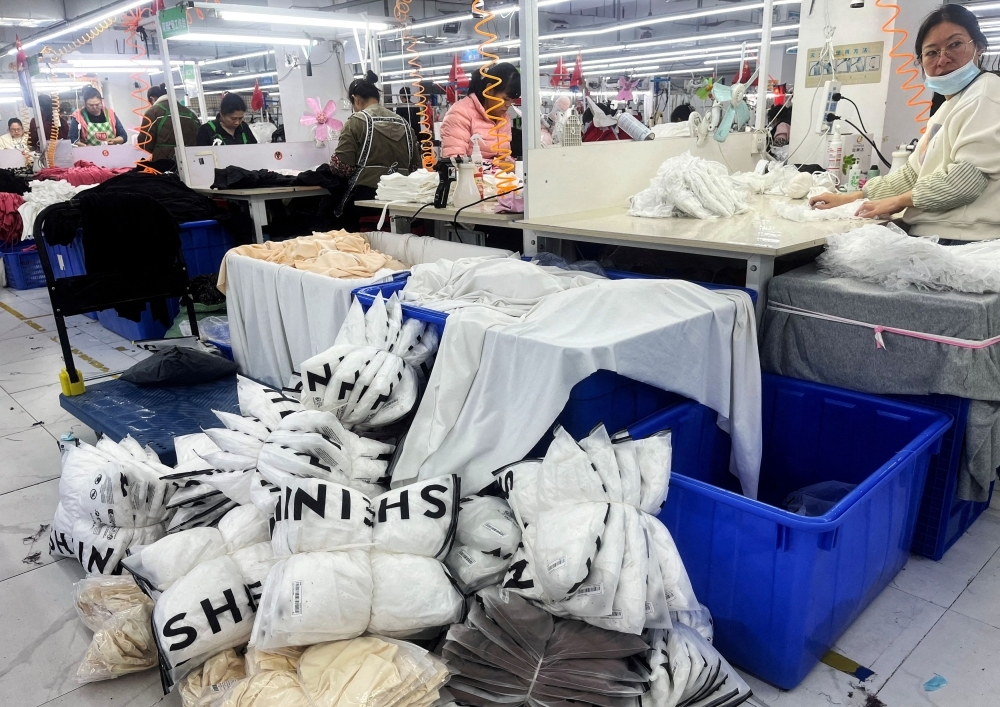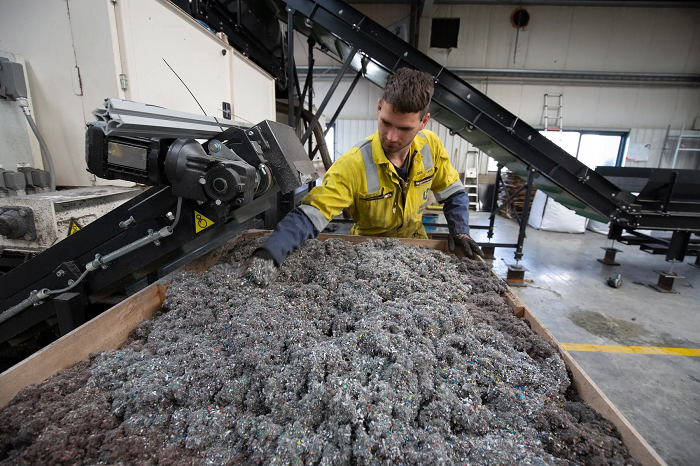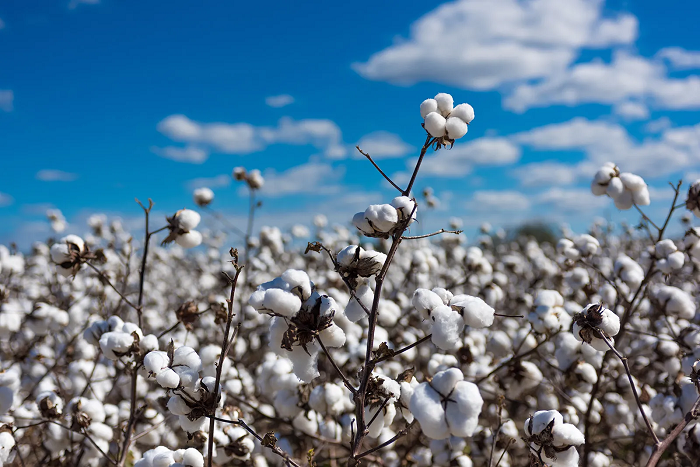FW
As per the Central Java Indonesian Enterprenuers Association (Apindo), although the export value of Central Java's textile and textile goods have decreased since July 2018, the industry is growing again. From January to July 2018, there was a slowdown in the textile and garment industries. However, since last month, orders have again begun to increase. In the next two to three months, the realisation of exports of textiles and textile goods from Central Java will increase significantly.
Data released by the Central Bureau of Statistics (BPS) reveal both exports and imports of textiles and textile goods in Central Java decreased from $220.86 million in July 2018 to $172.53 million in August 2018. Similar to imports, exports also decreased from $288.95 million to $266.37 million.
The total import value of Central Java in August 2018 reached $1.55 billion, up 18.71 per cent compared to July 2018 when it was $1.3 billion.
Synthetic fabric and textiles in India are likely to become costlier as the raw materials used in their production, petrochemicals like DMT, PTA, have become more expensive. The steep depreciation in the rupee against the dollar is set to make imports of raw materials costlier, leaving no room for synthetic textiles manufacturers but to raise their product prices.
The synthetic textile industry already works on wafer thin margins. But given the forecast that crude oil price will remain firm, synthetic fiber and yarn prices may also remain firm. An improvement in cotton price to polyester staple fiber price spread is likely to result in volume growth of synthetic textiles and support the profitability of the synthetic value chain.
Pink bollworm attack is set to affect India’s cotton crop area by ten to 20 per cent. Demand from China is set to increase in favor of India following a heavy import duty levied on cotton imports from China and as cotton output in Pakistan is expected to decline by a fourth, fiber prices are likely to remain elevated.
The benchmark Brent crude oil prices have jumped by a staggering 12.9 per cent in the previous one month. Also, the rupee has depreciated by 4.1 per cent in the last one month.
The Pakistan Tehreek-e-Insaf (PTI) government, which is in the process of reshaping economic policies, has reduced regulatory duty on raw material imports, especially for the five zero-rated sectors. This reduction in duty on 82 items would save Rs 5 billion for the textile industry in remaining months of the current fiscal year 2018-19.
This is in addition to the Rs 44-billion benefit the industry, especially those located in Punjab, is being provided through gas subsidy to make the utility price uniform across all four provinces in the country.
As per Pakistan Bureau of Statistics (PBS), the industry earned $13.53 billion in export proceeds in the previous fiscal year ended June 2018 that came to around 58 per cent of total exports of $23.22 billion in the year. In the first two months (July-August) of the current fiscal year, the industry fetched $2.26 billion in exports or 62 per cent of the total export proceeds of $3.66 billion.
A prominent Cambodian unionist has threatened to protest on a large-scale if the newly formed government ignores a European Union resolution that threatens to end Cambodia’s tariff-free access to EU markets. Rong Chhun, President of the Cambodian Confederation of Unions (CCU) and a former National Election Committee member has urged the government to take action to prevent Cambodia’s suspension from the Everything But Arms preferential trade scheme.
The EU is Cambodia's largest export market, with garment exports to the EU alone amounting to about $700 million annually. The government has claimed that it would find other markets to export Cambodian products to if it is excluded from the EBA scheme. But no other markets come close to meeting the demand, with the position of the second-largest export market, the US, also in question. Together, exports to the EU and US make up the vast majority of all Cambodian textiles exports.
Adriano Goldschmied, known as the godfather of denim, will launch his limited edition of Godfather of Denim knit tee, made in LA with Tencel Lyocell branded fibers. Proceeds from the tee shirt sale will be donated to Greenpeace, an NGO supporting the protection and conservation of the environment, as well as promoting peace. The brand will launch ‘THE G’ which are beautiful 100 per cent Tencel ™ Lyocell T-shirts made in a superfine yarn.
Goldschmied is working on many different projects from design to textiles and almost all are focused on sustainability. The brand recently eedesigned the method of work, have more efficiency and speed and introduce the digital work at all the levels in order to have control, more creativity and make better products. Be closer to the consumer and integrate the new demand in the new products and communicate back immediately.
Lenzing has developed a new technology platform. The web technology is a nonwoven web formation process that starts with botanic wood pulp and produces a nonwoven fabric made of 100 per cent continuous Lyocell filament.
This web can be integrated with standard non-thermal based nonwoven bonding technologies, such as hydroentangling and needle punching. The technology enables a unique self-bonding mechanism where filaments bond into a fabric during the laydown process. This self-bonding mechanism enables a product range with a much wider variety of surface textures, drapeability and dimensional stability than other nonwoven technologies utilizing 100 per cent cellulosic fibers.
The flexibility of the technology and the possible integration with other nonwoven and textile technologies will enable the development of a broad range of composite structures for highly engineered end use applications. Consumers have become more aware of the negative impact of plastics in waterways and marine ecosystems. The new Lenzing web technology will enable the value chain to create more innovative applications out of natural, biodegradable cellulose materials.
The web technology is a perfect example of Lenzing’s testament for strategic growth and its commitment to developing new breakthrough innovations by providing more sustainable products to consumers. The nonwoven segment currently represents 30 per cent of Lenzing’s core business.
ThreadSol is all set to explore the African apparel industry to transform manufacturers to super vendors. The innovative garment tech company participated in Origin Africa event 2018 held in Kenya. At the fair, ThreadSol presented its range of innovative software solutions for the African apparel manufacturers. ThreadSol is also set to participate in the next African event of ATF (International Apparel, Textile and Footwear trade exhibition) from November 20 to 22 in Cape Town to present the solutions.
ThreadSol’s innovative solutions transform the manufacturers to super vendors. The solutions, intelloCut and intelloBuy reduce planning time by almost 80 per cent and fabric sourcing cost by acting on data and insights. These solutions are powered by the latest IT technologies of artificial intelligence, Big Data, and Mobility. Consequently they reduce lead time and cost for manufacturers enabling them to handle more styles, cater to in-season change and at the same time, improve the topline and bottom line of their businesses.
The Indonesian minister of trade Enggartiasto Lukita has urged the Indonesian Textile Association (API), the textile and textile product industry (TPT) to increase production, so that they can dominate the domestic market. He hoped TPT can encourage exports to markets, such as the United States and Europe. Thus, it continues to accelerate the completion of foreign trade negotiations. He said his team had completed negotiations between the Chile, Palestine, ASEAN-Hong Kong FTA and Investment Agreement, ASEAN Comprehensive Investment Agreement (AMA), etc. While some negotiations are still in process including Indonesia-Australia CEPA, Indonesia-European CEPA, Indonesia-EFTA CEPA, Indonesia-Iran PTA among others.
In addition to completing the agreement, the ministry of trade will also bring together the API with the Indonesian Chamber of Commerce and Industry (Kadin) to work together to increase TPT.
Esprit group revenue has fallen 11.1 per cent. Germany, Esprit’s largest market, accounted for about half of total sales. For the rest of Europe, America and the Middle East, sales fell 9.8 per cent, and in Asia Pacific, which accounts for just 12.3 per cent of total revenue sales fell 15.2 per cent. Offline sales in Asia-Pacific fell 17.1 per cent and online sales fell 5.3 per cent.
Esprit was affected during the year by the rapidly evolving retail industry, fueled by the continuous growth of e-commerce leading to changes in consumer consumption patterns, and the intensification of price competition driven by both pure digital players and fully vertical retailers.
Despite the operating loss, the company remained in a healthy financial position, debt-free and with a net cash balance of 790 million dollars. Some of that cash was used to repurchase about 2.9 per cent of the company’s shares.
The company has warned shareholders of a further drop in sales for the current financial year in the low double-digit percentage range year on year, mainly due to the continuing rationalisation of its distribution footprint and further decline in customer traffic amid Esprit’s execution of a plan to rebuild store visitor numbers.
H&M brand COS will open its flagship store at Tmall, strengthening its presence in China. This is expected to be the brand’s only online shopping channel in China, apart from its official site. The offerings will include a wide selection of COS’ women’s wear, menswear and children’s wear lines.
COS is expanding operations across China by opening a new brick-and-mortar flagship store in Shanghai, and new stores in major cities like: Beijing, Xiamen and Guangzhou. Launched in China in 2012, COS has 28 stores across 17 cities.
The brand will install its famous structure 'New Spring' in a historial building in Shanghai, giving Chinese consumers the chance to take part in the multi-sensory installation from October 20-28. Created in collaboration with London-based design duo Studio Swine, the tree-like structure that blossoms with mist-filled, scented bubbles was specially commissioned for last year’s Salone de Mobile, one of the world’s biggest furniture and design fairs, held annually in Milan.
In tandem with the pop-up installation, the brand will feature a curated selection of COS apparel, available for purchase on Tmall and in select physical storefronts across China.











